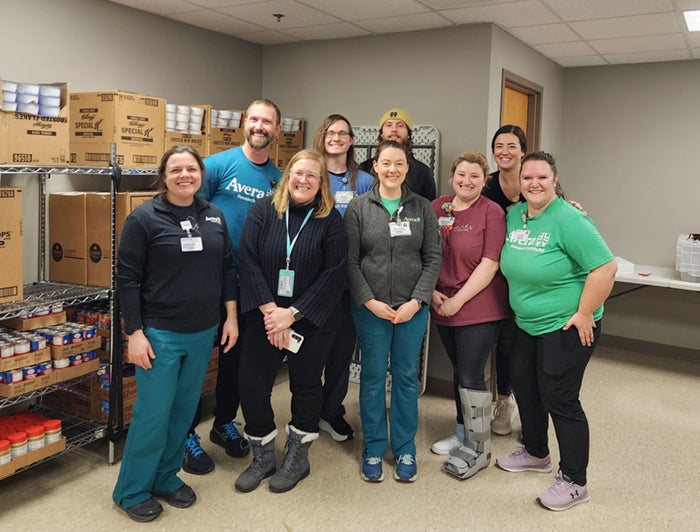South Dakota clinics and hospitals offer pantries to help feed community

What do you do when people in your community are food insecure, but they don’t qualify for federal food assistance programs? Make food available to them in places they can easily access — like clinics and hospitals.
Avera Health is collaborating with Feeding South Dakota, Avera Research Institute and Avera’s Community Partnership in a pilot program to offer clinic-based food pantries, known as Wellness Pantries, to patients in Sioux Falls and Parkston, S.D.
“The need continues to be great, especially with rising prices,” said Lori Dykstra, CEO of Feeding SD. Feeding SD reports that 106,000 South Dakotans are food insecure, and 65% of those individuals do not qualify for federal food assistance programs. “One in nine children and one in 12 adults in our state don’t have access to the food they need to thrive. We want to continue to find ways to reach people facing hunger, and Wellness Pantries are an effective model to provide access when food can impact them the most.”
At the pantries, patients in need have access to shelf-stable produce, nonperishable items and dairy products. They can also get referrals to food pantry options in their community.
“Food insecurity is one of the top issues identified in our Community Health Needs Assessment every three years,” said Ronald Place, M.D., regional president and CEO of Avera McKennan Hospital & University Health Center.
“The strength of this program is that it provides emergency food assistance, right then and there, when the need is identified,” added Lacey McCormack, Ph.D., director of rural research at Avera Research Institute and project director for Healthy Start. “Avera’s collaboration in this project will help directly support patients by promoting health and improving food and nutrition security.”

